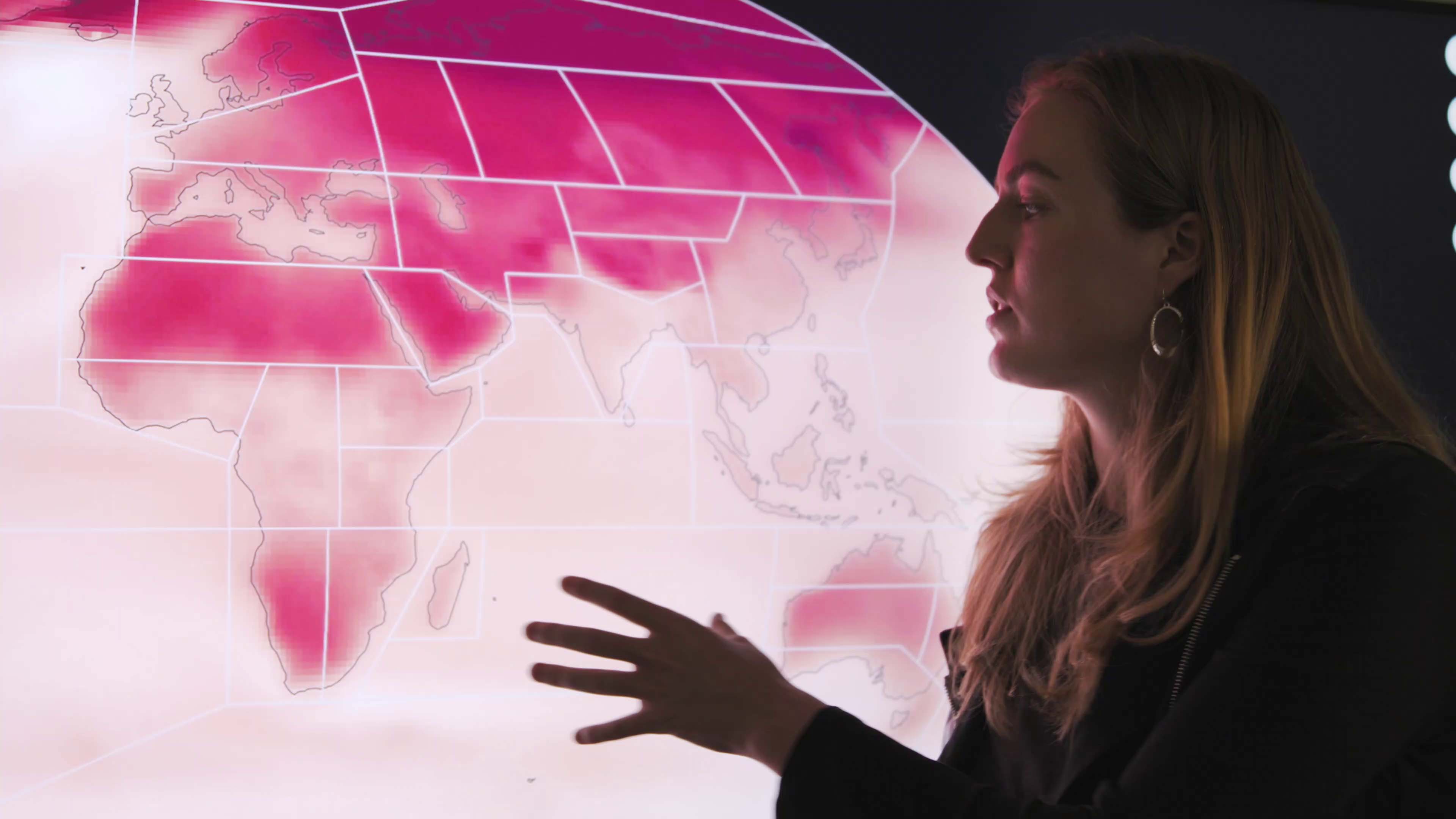Anna decided to change her major part way through her Bachelor of Science to focus on her passion for the environment – a decision which eventually led her to a Master of Climate Science.
Anna’s undergraduate experience was a little different to some of her friends. While many of them seemed confident in what they wanted to study and major in, Anna used her degree to discover her unique passions and strengths and unlock new career possibilities.
“I left high school knowing that I wanted to go to university, but I had no idea what I wanted to study, so Melbourne gave me lots of freedom to explore. Everything in the science degree was so broad and so exciting; I could study data science or psychology or bioinformatics or exercise physiology. I didn’t know all these study areas existed and it wasn’t even until my masters that I discovered climate science.”
The Bachelor of Science offers more than 40 majors to choose from, including a full range of science, technology, engineering, maths and biological sciences. If you’re unsure of what your future career might look like, you don’t need to decide right away. You’ll have time to explore your desired career path.
On completing the first year of her degree, Anna planned to major in mathematics. However, unsure if this was the sole direction she wanted to take, she used the flexibility of the Bachelor of Science to refine her interests and clarify what she wanted to get out of her degree.
“When I got to my third year, I felt prepared to make what I considered to be a really big decision: to change my major from maths to study environmental science and ecology.”
This shift expanded Anna’s ideas on what it meant to study science. The different career opportunities meant she could be working in modelling, using her maths and data skills, or be out in the field in an area such as land management. Having the ability to choose different majors and find the combination of subjects that works for your interests and goals is a key part of how the Bachelor of Science is structured.
I could go into something like research at the CSIRO or work at the Bureau of Meteorology. There are so many options with consulting or research or policy.

This freedom to explore is part of how the Melbourne curriculum enables you to make the degree your own. You can make informed decisions about what you want to specialise in as you make progress in your degree – or at graduate level. In the Bachelor of Science, you don’t have to choose your major when you start your studies. Instead, you can take time and see just how many opportunities there are. Then, if you want to specialise further, a graduate program can help you develop those skills even further and stand out in the industry of your choice.
“The maths and physics subjects I took in my Bachelor of Science are areas that I apply it to what I’m interested in. For example, I can use the maths skills with computational modelling where I’ve been learning to identify changes and patterns in flora and fauna., so tThese skills are helpful with managing the data. Taking subjects in both maths and environmental science, I’ve been able to satisfy both sides of my brain with the desire to do something more for the environment but still have the challenge of working with algorithms and programming.”
After completing her Bachelor of Science, Anna felt like there was something more she could be doing. Inspired by the Book of Hope by Jane Goodall, Anna reflected on how her life could make a difference to the environment around her. With an interest in science and the environment, she felt motivated to look at ways she could help with climate change.
The Master of Climate Science seemed like the obvious answer. While Anna hadn’t studied climate science before, her skills in mathematical modelling and ecology were a relevant starting point.
“I’ve developed this passion for climate science and I’ve learned so much. I never saw myself doing research, but now I'm considering a PhD because I’ve gained all this momentum and knowledge that I feel like there’s so much more I can do.”
Within the Master of Climate Science, there’s a choice between an industry or research project. You can partner with organisations for applicable, relevant work experience, or complete a research project on a topic that you’re interested in. As a masters student, Anna has been working alongside PhD candidates and become part of a community of world-class climate scientists.
These immersive and tailored experiences mean you can learn from leading academics and build the networks that could lead to internships or jobs. It’s the relevant kind of experience that brings together everything you learn throughout your degree that can help you in your future career, whatever path you take.
Starting with an undergraduate degree and continuing to a professional masters degree gives students like Anna the time and flexibility to explore their strengths and passions. This means you don’t need to know your major when you enrol in your studies, and you can decide on your discipline when you’re ready.
“That’s something I wish more people talked about – it's okay to take the time you need to figure out what you want to do. I’ve developed these really strong connections throughout my degrees and this community on campus has been absolutely key for me. It’s your degree and your pathway to follow and make your own.”
